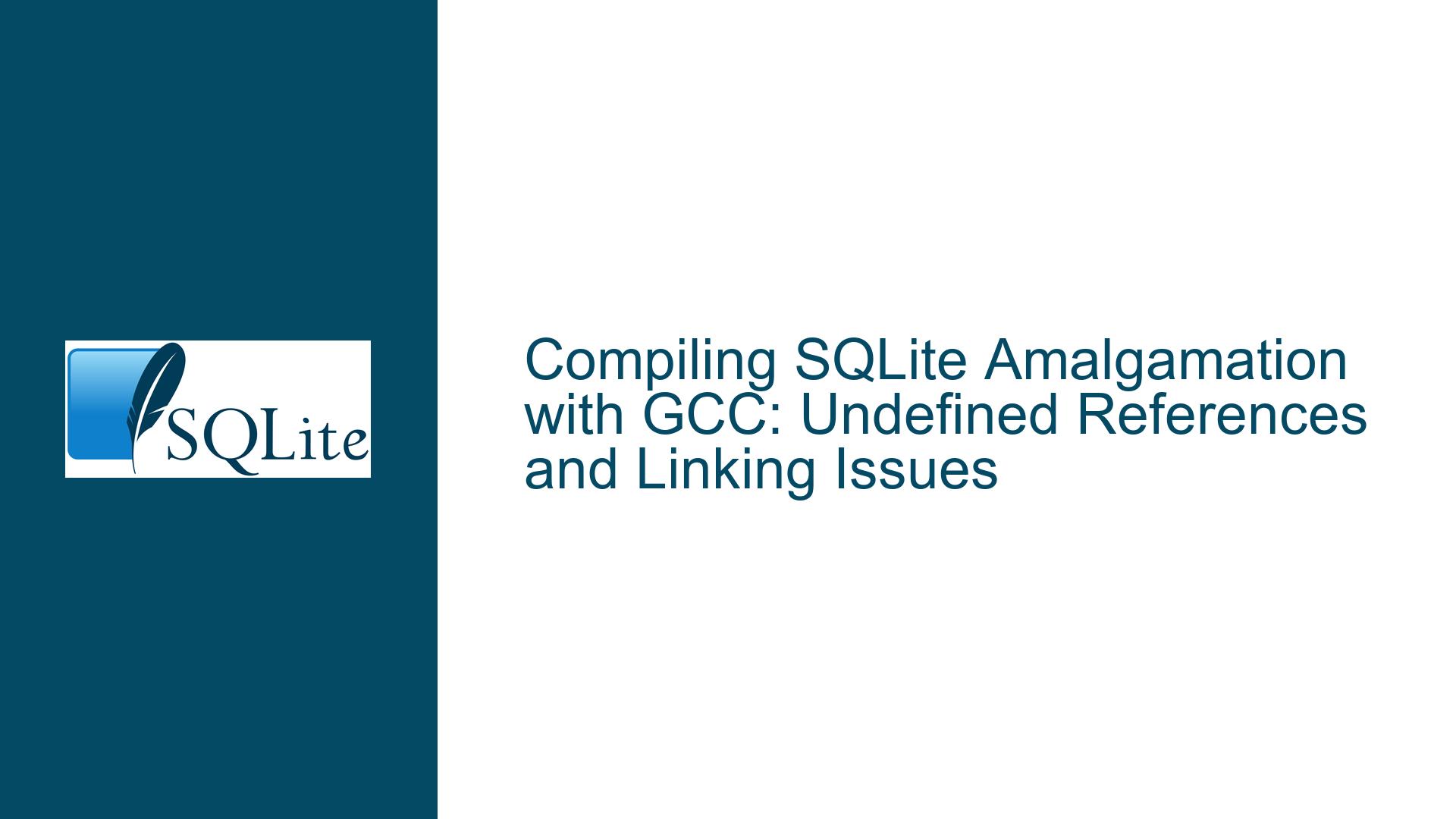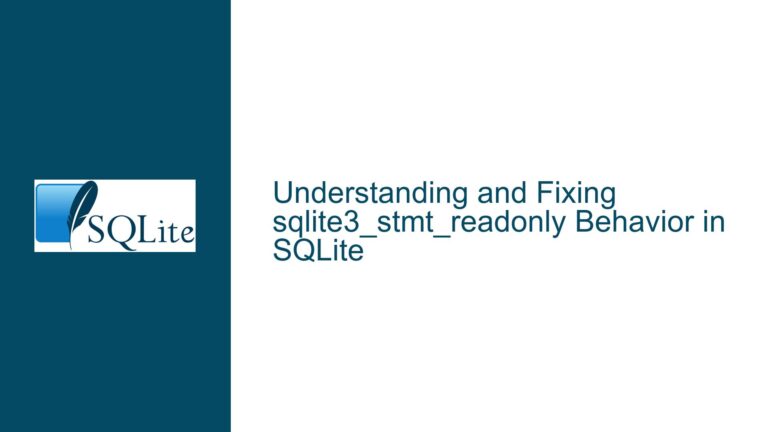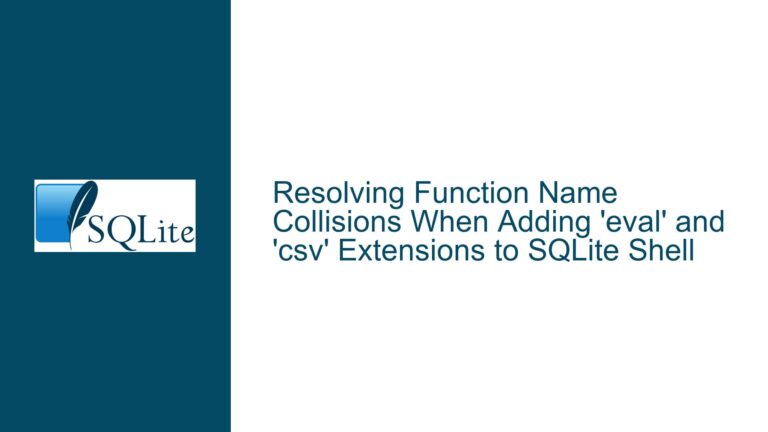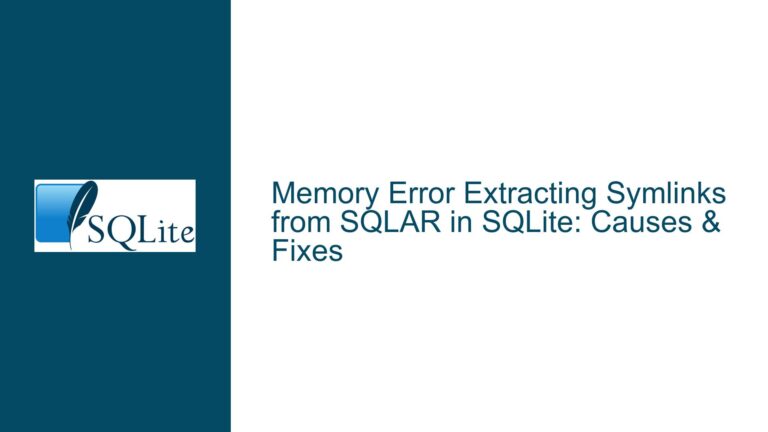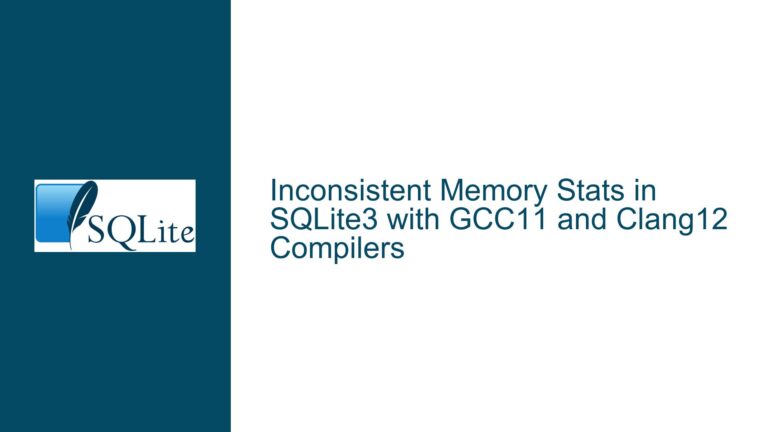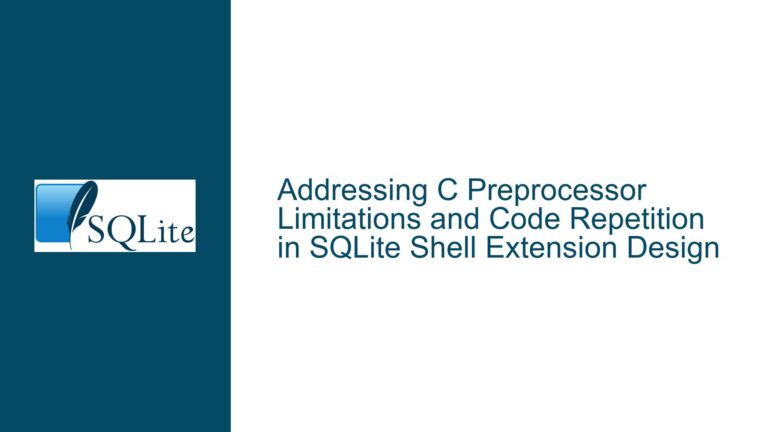Compiling SQLite Amalgamation with GCC: Undefined References and Linking Issues
Undefined References to pthread and dl Functions During Compilation
When attempting to compile the SQLite amalgamation (sqlite3.c) or the SQLite shell (shell.c) using GCC on a Unix-like system, you may encounter errors related to undefined references to functions such as pthread_mutexattr_init, pthread_create, dlopen, and others. These errors typically manifest during the linking phase of the compilation process, where the compiler attempts to resolve external symbols used in the code but cannot find their implementations. The errors are often accompanied by messages like undefined reference to 'pthread_mutexattr_init' or undefined reference to 'dlopen', followed by collect2: error: ld returned 1 exit status.
The SQLite amalgamation is a single-file version of SQLite that includes the entire SQLite library, making it easier to compile and integrate into projects. However, SQLite relies on certain external libraries for specific functionalities, such as threading (pthread) and dynamic loading (dl). If these libraries are not explicitly linked during the compilation process, the linker will fail to resolve the references to the functions provided by these libraries, resulting in the aforementioned errors.
The issue is particularly common when compiling SQLite on Unix-like systems, where the default behavior of GCC does not automatically link against these libraries. This is in contrast to some other platforms or compilers that might include these libraries by default. The problem is exacerbated when compiling the SQLite shell (shell.c), which depends on both sqlite3.c and the external libraries.
Missing Linker Flags for pthread and dl Libraries
The root cause of the undefined reference errors is the absence of the necessary linker flags (-pthread and -ldl) during the compilation process. The pthread library provides the implementation for POSIX thread-related functions, such as pthread_create, pthread_join, and pthread_mutexattr_init. These functions are used by SQLite to implement threading support, which is essential for features like shared cache mode and concurrent access to the database.
Similarly, the dl library provides functions like dlopen, dlsym, and dlclose, which are used by SQLite for dynamic loading of extensions. Dynamic loading allows SQLite to load external modules at runtime, enabling features like user-defined functions and virtual tables. Without linking against the dl library, the linker cannot resolve these symbols, leading to the undefined reference errors.
The issue is further complicated by the fact that the SQLite amalgamation does not include the implementations of these functions. Instead, it relies on the system’s standard libraries to provide them. This design choice keeps the amalgamation lightweight and portable but requires the user to ensure that the necessary libraries are linked during compilation.
Another potential cause of the issue is the incorrect use of GCC options. For example, using the -c flag (which tells GCC to compile and assemble the source files but not link them) without subsequently linking the object files can also result in undefined reference errors. This is because the -c flag stops the compilation process before the linking phase, leaving the object files unresolved.
Proper Compilation and Linking with -pthread and -ldl Flags
To resolve the undefined reference errors, you need to ensure that the pthread and dl libraries are linked during the compilation process. This can be achieved by adding the -pthread and -ldl flags to the GCC command line. The -pthread flag ensures that the pthread library is linked, while the -ldl flag ensures that the dl library is linked.
For example, to compile the SQLite amalgamation (sqlite3.c) into an executable, you would use the following command:
gcc -I ~/sqlite sqlite3.c -o sqlite3 -ldl -pthread
This command tells GCC to include the sqlite directory in the include path (-I ~/sqlite), compile sqlite3.c, and link the resulting object file with the dl and pthread libraries (-ldl -pthread). The -o sqlite3 option specifies the name of the output executable.
If you are compiling the SQLite shell (shell.c), which depends on sqlite3.c, you would use a similar command:
gcc -I ~/sqlite sqlite3.c shell.c -o sqlite3 -ldl -pthread
This command compiles both sqlite3.c and shell.c, links them together, and ensures that the dl and pthread libraries are included in the final executable.
If you only want to generate an object file (for later linking), you can use the -c flag:
gcc -c -I ~/sqlite sqlite3.c -o sqlite3.o
However, you must remember to link the object file with the necessary libraries when creating the final executable:
gcc sqlite3.o -o sqlite3 -ldl -pthread
It is also important to ensure that the paths to the source files and include directories are correct. For example, if the sqlite3.c and shell.c files are located in the ~/sqlite/temp directory, you should use the correct path in the -I option:
gcc -I ~/sqlite/temp sqlite3.c shell.c -o sqlite3 -ldl -pthread
In summary, the undefined reference errors during the compilation of SQLite are caused by the absence of the -pthread and -ldl linker flags. By including these flags in the GCC command line, you can ensure that the necessary libraries are linked, resolving the undefined references and allowing the compilation to succeed. Properly specifying the include paths and using the correct GCC options (such as -c for object file generation) are also essential steps in the compilation process.
